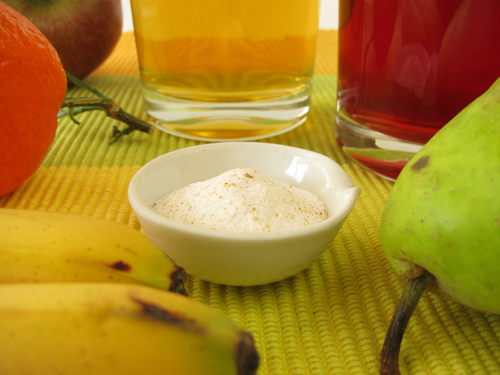Study Finds Probiotic Supplementation For CF Patients Can Help Improve Quality Of Life
Written by |

 A recent study published in the Iranian Journal of Pediatrics suggests that taking probiotics supplements can help improve quality of life for patients with cystic fibrosis (CF). Persons with CF (and many other disease conditions) frequently suffer from imbalanced intestinal microbiota ecosystems and suffer consequent dysregulated immune functionalities exacerbated by intensive exposure to antibiotics that indiscriminately kill off beneficial bowel flora along with pathogenic agents.
A recent study published in the Iranian Journal of Pediatrics suggests that taking probiotics supplements can help improve quality of life for patients with cystic fibrosis (CF). Persons with CF (and many other disease conditions) frequently suffer from imbalanced intestinal microbiota ecosystems and suffer consequent dysregulated immune functionalities exacerbated by intensive exposure to antibiotics that indiscriminately kill off beneficial bowel flora along with pathogenic agents.
The Iranian study, entitled “Effects of Probiotics on Quality of Life in Children with Cystic Fibrosis; A Randomized Controlled Trial” (Iranian Journal of Pediatrics 2013. 23(6):669-674), is coauthored by Ali Jafari, Atieh Mehdizadeh Hakkak, Hamidreza Kianifar, Paria Hebrani, Hamid Ahanchian, and Elaheh Abbasnejad, who note that the objective of their research was to investigate the phenomenon of patients with cystic fibrosis (CF) usually presenting with abnormal intestinal microbiota and dysregulated immune mediators due to massive exposure to antibiotics. They observe that probiotics as immunomodulatory and anti-inflammatory substances are considered to improve both clinical and biochemical intestinal and pulmonary function in CF patients, and decided to investigate the effects of probiotics on quality of life and pulmonary exacerbations in children with cystic fibrosis.
The study’s methodology was a prospective, randomized, controlled clinical trial in which 37 CF patients (aged 2-12 years old) were randomly divided into two groups. 20 patients in the probiotic group took probiotics (2109CFU/d) for one month, while 17 patients in a control group received placebo capsules. Quality of life was determined using PedsQLTM4.0 questionnaire at the beginning, then three and six months after completing the treatment period. Rate of pulmonary exacerbation in probiotic group patients was also evaluated during three months after intervention and compared to the same three months of the previous year. Results were analyzed using SPSS (11.5).
The scientists observed significant improvement in the mean total score of parent-reported quality of life among probiotic group patients in comparison with the placebo group at the third month (P=0.01), but this was not significant at sixth month of probiotic treatment. Rate of pulmonary exacerbation was significantly reduced among probiotic group (P<0.01).
[adrotate group=”1″]
The study coauthors conclude that probiotics are considered useful nutritional supplements for reducing frequency of pulmonary exacerbations and improving quality of life in patients with cystic fibrosis. However, they note that positive effects of probiotics seem to be temporary and a regime of continuous supplementation with probiotics will probably have more stable improving effects on quality of life than short-term courses.
According to a report by the Fayetteville, Arkansas based food, diet & nutrition news site Foodconsumer.org, the probiotic product used in the Iranian study was Protexin made by Probiotics International Company, U.K. and two capsules were used per day for one month, each containing 10 CFU bacteria including Lactobacillus casei, Lactobacillus rhamnosus, Streptococcus thermophilus, Bifido-bacterium breve, Lactobacillus acidophilus, Bifidobacterium infantis, and Lactobacillus bulgaricus. The company notes that The trillions of microflora that can be found in the human gastrointestinal tract play an essential role in supporting and maintaining strong immune and digestive systems, so having the optimum balance of these beneficial bacteria is important. A number of factors can compromise this balance, including antibiotic therapy, infection, stress, travel or a period of unhealthy nutrition or lifestyle. An effective solution is to supplement the microflora by taking a multi-strain probiotic to restore the balance.
Some probiotic advocates suggest that taking probiotic supplements containing fewer than 10 billion cfu will likely prove ineffective if there is major gut dysbiosis. Supplements containing up to 50 billion cfu per capsule dose are available. Some examples include:
Healthy Origins Probiotic 30 Billion Cfu
Active Balance Clinical Strength Probiotic supplement containing 50 billion CFU’s
Sources:
Iranian Journal of Pediatrics
Foodconsumer.org
Probiotics International Company
Amazon.com
Image Credit:
Probiotics International Company







